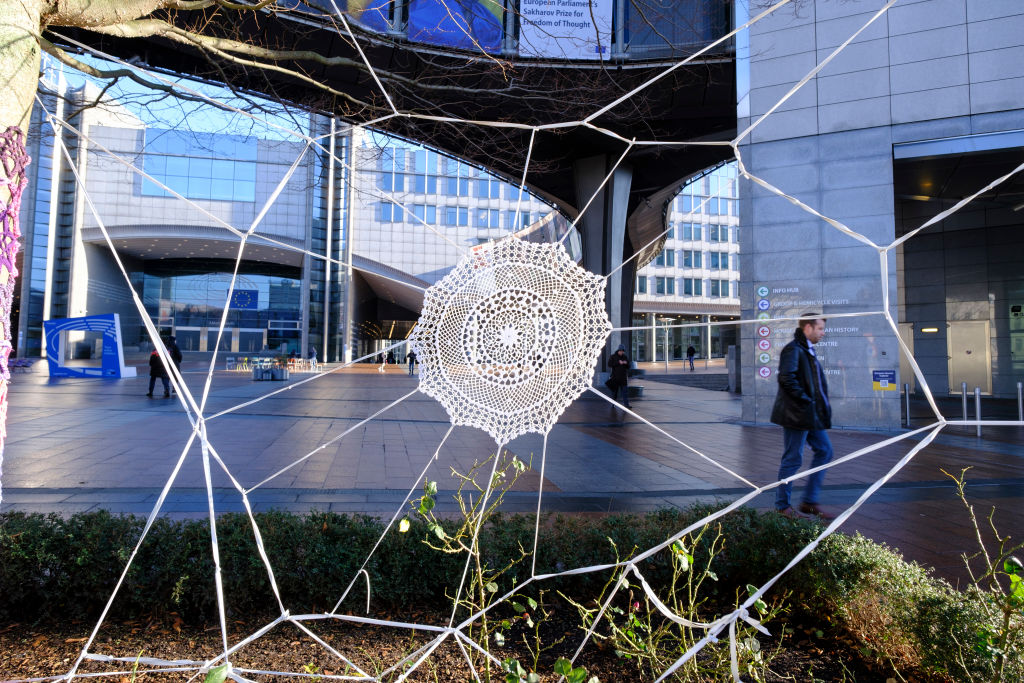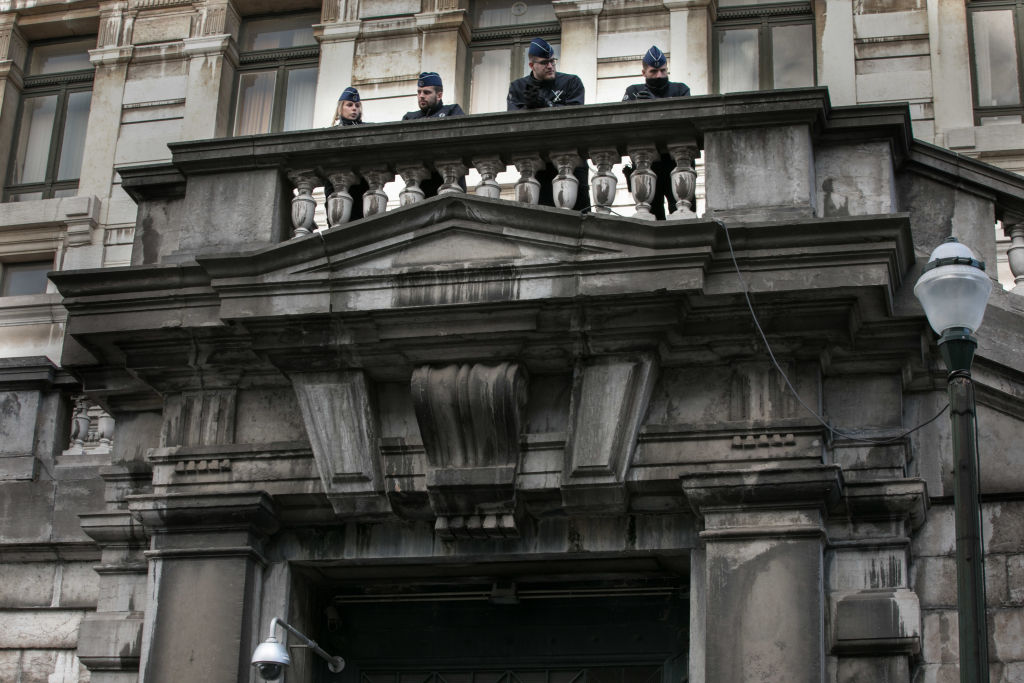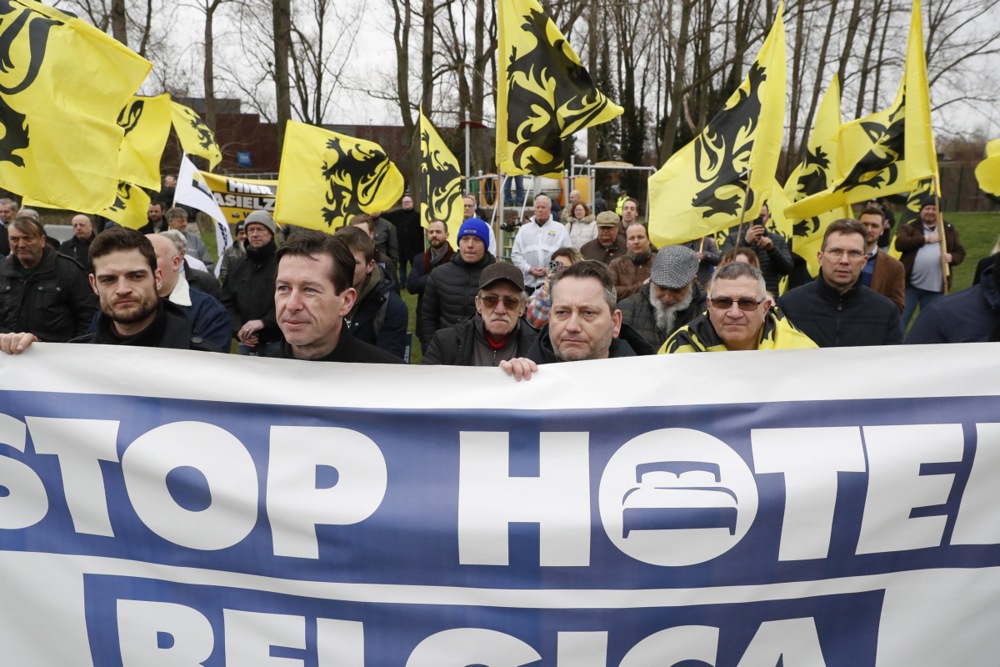A bombshell complaint has caused critics to pile in on the Qatargate cash-for-influence inquiry in the European Parliament.
Francesco Giorgi, a main suspect in the scandal, on February 5 called for the entire case to be thrown out.
To ram home his demands, Giorgi, who is a partner of Eva Kaili, also in the crosshairs of Belgian justice regarding the inquiry, produced what appeared to be a damning recording.
It was claimed to have been secretly made when Ceferino Álvarez-Rodríguez, a Belgian police officer, paid Giorgi a visit in early May 2023, ostensibly to return a phone previously seized by law enforcement.
Álvarez-Rodríguez is a senior inspector with the Central Office for the Suppression of Corruption of the Federal Judicial Police.
In the recording, he seemingly complained to Giorgi that Italian MEP Antonio Panzeri, the alleged ringleader of the corruption circle who took a plea-bargain deal with the Belgian police, was “lying through his teeth”.
Panzeri had previously implicated Kaili and Giorgi, as well as fellow Italian MEP Andrea Cozzolino and Belgian MEP Marc Tarabella.
The senior inspector is also apparently heard saying that prosecutors and judges in Belgium “serve a political agenda”.
Giorgi’s attorneys submitted the 18-minute audio recording to the federal prosecutor’s office on February 5, questioning “the regularity” of the inquiry.
The recording was shared with all the other parties involved in the case “so everyone could draw their own conclusions”, according to officials.
The Financial Times, referring to the recording, quoted “Álvarez-Rodríguez” as saying: “We know that [Panzeri is lying] and we will do what is necessary so that the [plea bargain] will not pass.
“If we prove he is lying … he is over.”
The officer, if it is him, goes on to say: “We don’t believe anything he says,” according to Belgian media reports on the tape.
“We know very well that he is deceiving us, we know it. But everything will explode. When it explodes, it will explode.”
Giorgi was angry that Belgian investigators had searched his apartment after his release from custody and had seized notes he had written for his legal defence.
“You must be crazy to trust the judiciary today, whatever country, whatever judiciary,” Alvarez-Rodriguez apparently replied in the recording to Giorgi’s remarks about how “shocking” and untrustworthy Belgian investigation procedures are.
“Alvarez-Rodriguez” is then said to have stated that politicians control decisions from the judiciary.
The recording is another in a long list of controversies surrounding Qatargate from the beginning.
The most striking, perhaps, is the recusal of lead investigative judge Michel Claise due to his close ties to Marie Arena MEP, often referred to but never-questioned in the Qatargate affair.
Other raging controversies include serious legal questions around the alleged violation of Kaili’s parliamentary immunity and the claims that Belgian authorities and intelligence services might have been operating illegally.
Some also question the lifting of arrest warrants for Panzeri’s family members. Marc Uyttendaele, the legal representative for Panzeri, has alleged that investigators made promises during his client’s hearing that were “not fulfilled”.
Giorgi asserts that investigators violated the confidentiality between himself and his lawyer through phone taps, leading to searches of his premises in April, 2023.
Anthony Rizzo, a lawyer and lecturer at Université libre de Bruxelles, told news outlet Sudinfo that the so-called “informer law”, still relatively new in Belgium, leaves room for “ambiguity” and that the strategic use of informer status for Panzeri has “raised concerns”.
Rizzo called the current situation “a nest of problems”.
During the Qatargate investigations, Panzeri was given the status of informer, or “repentant”, very early on in proceedings, thus, some say, enabling him to “influence” the inquiry. In theory, that move should have been a measure of last resort, observers have pointed out.
Franco Roberti MEP, a former anti-Mafia prosecutor in Italy, is critical of the entire Belgian investigation. “This could never have happened in Italy,” he told Il Dubbio News.
Currently, the Belgian court is evaluating the “regularity” – or otherwise – of the investigation. Whether the case continues is, it seems, dependent on many factors.





